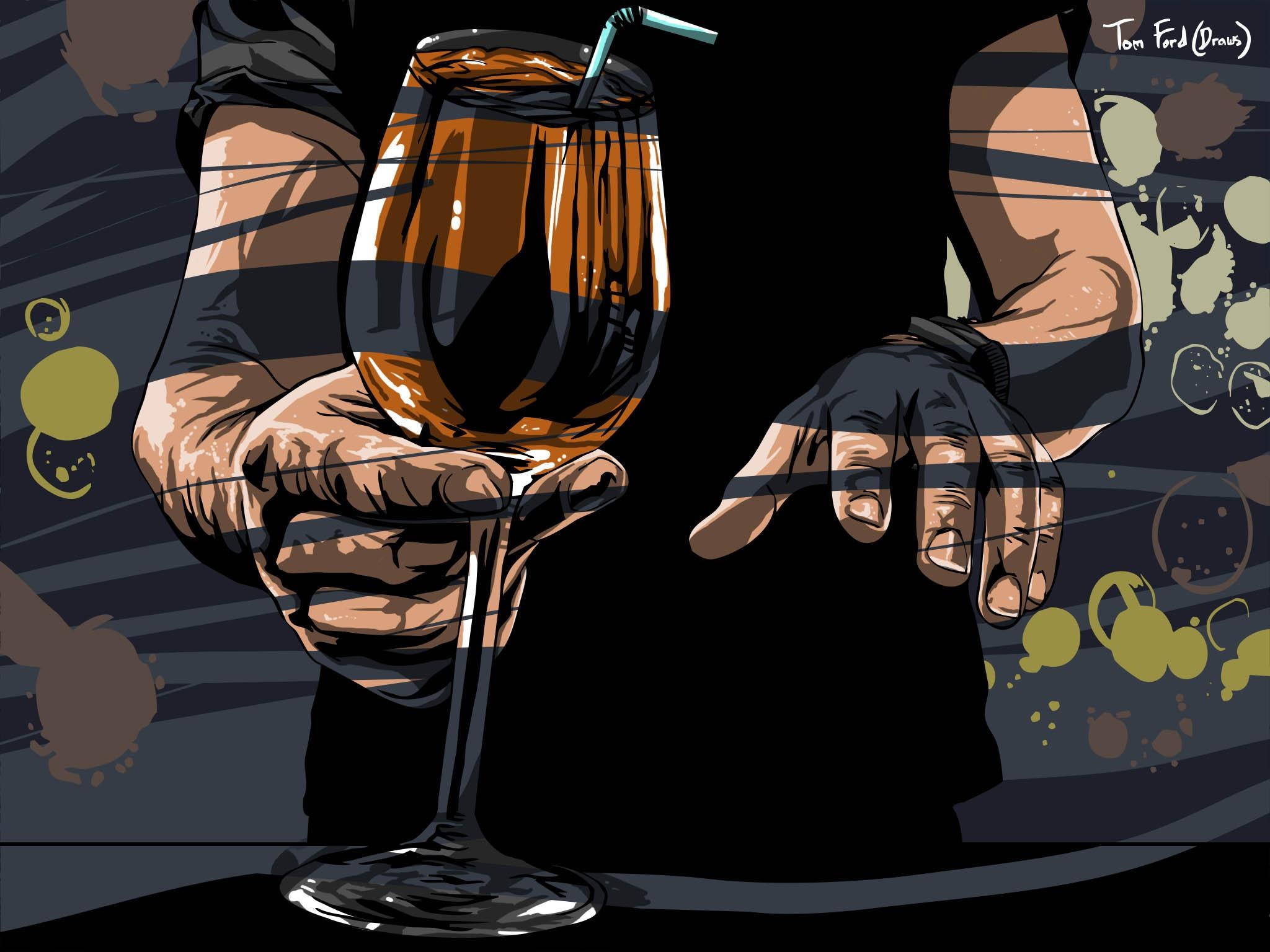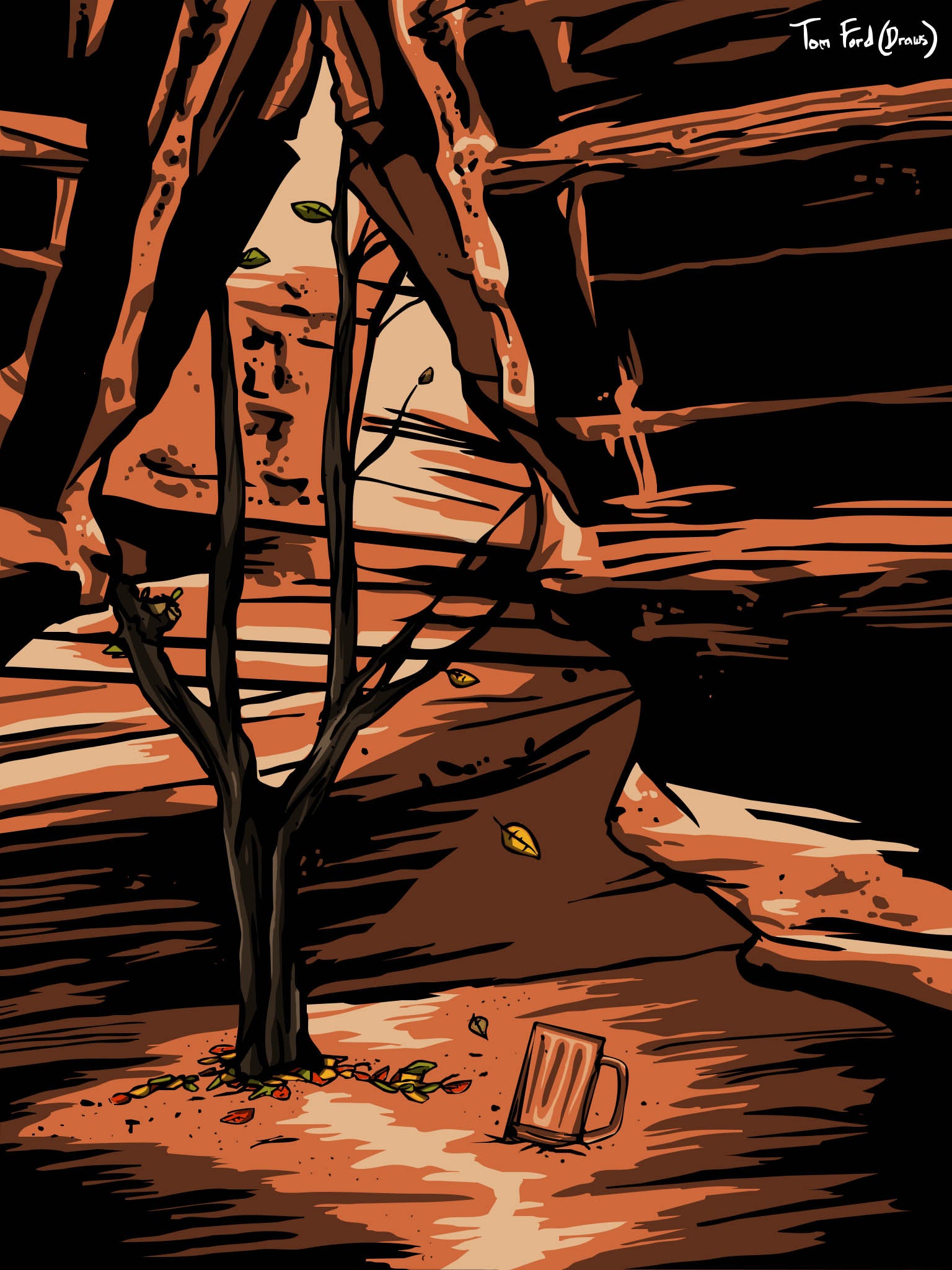Why it's best to think twice before asking: 'Fancy a drink?'
You can’t ask me that! Continuing her series tackling socially unacceptable questions, Christine Manby explores one that is perhaps a lot more accepted than it should be...


Do you fancy a drink? I know I do. October is my birthday month and ordinarily I’d be spending most of it using being another year older as an excuse for champagne. Not this year, however. This year, I’m “going sober for October”.
Forget Dry January, October is now officially the month of abstinence. It started with Stoptober, which was aimed at helping people wanting to give up smoking. Then Stoptober’s backers, Macmillan Cancer Support, introduced Sober October, wherein participants commit to a month of not drinking to raise funds for the charity’s work.
This month won’t be the first I’ve had off alcohol this year. I took four weeks off drinking from the middle of August too. I’d like to say that it was a concern for my health that drove this decision, but in reality, it was driven by vanity. This year’s unexpectedly beautiful summer had a surprising impact on my drinking habits. There was a festival feeling to London’s sunny streets that called for pink wine, Aperol Spritz and long, cold beers. It suddenly seemed reasonable to approach another Wednesday night in Balham like the first night of an all-inclusive holiday in Antigua. I had a great time. But then I saw the photographs. I needed beer goggles to be able to bear looking at them.
So I decided to quit for a month, bookended by two big parties. I didn’t think it would be difficult. I grew up in a pretty much teetotal household. As a student, I hardly touched a drop (couldn’t afford to). Throughout my twenties, I drank perhaps once a week. Even during my thirties, when I took my Wine and Spirits Education Trust exams and wrote a book about the champagne world, I don’t think I was ever properly drunk. Yet in my forties, it seems somehow harder to turn a drink down. Alcohol seems like the solution to an awful lot of problems. From a looming deadline to feeling nervous at a party full of strangers, there is nothing booze can’t make better. And, as the saying goes, no great story ever started with a salad.
Readjusting to a booze-free lifestyle while the sun was still shining as if Britain was Ibiza was surprisingly hard
Readjusting to a booze-free lifestyle while the sun was still shining as if Britain was Ibiza was surprisingly hard. Reading other people’s experiences helped. One book in particular resonated with me. In The Sober Diaries, Clare Pooley describes how she stayed off the sauce for a year (and dealt with breast cancer while she was at it). Pooley isn’t the sort of woman who immediately springs to mind when most of us think of someone with an alcohol problem. A former advertising executive, happily married with three children, Pooley’s epiphany came when she found herself drinking red wine from a mug bearing the legend “The World’s Best Mum” one Sunday morning. My life is quite different from Pooley’s but I recognised much in her lament about the ubiquity of alcohol in our society.
She asked: “Is it possible to live without alcohol in a world where you’re more likely to be offered a glass of wine at a play date than a cup of tea? Where Facebook is filled with references to ‘wine o’clock’? Where every social event is fuelled by gallons of booze? Is there life after wine?”
Another thing I recognised in Pooley’s memoir was her obsession with finding an alcohol substitute with which she could kid herself she was still having a “proper” drink. The drinker’s equivalent of “fat free” yogurt, if you like. Pooley turns again and again to the Becks Blue.
Meanwhile, I became obsessed with finding San Bitter or Crodino, two non-alcoholic aperitifs that are dead ringers for Campari and Aperol Spritz respectively. I tracked them down to an Italian deli in Knightsbridge where I bought six tiny bottles of each for rather more than I would ever have splashed on a bottle of wine.
Actor and author Michael Maisey spent most of his teenage years and his early twenties in and out of prison thanks to a lifestyle predicated on his drink and drug addictions. Now sober for more than 10 years, Maisey is wary of using “no alcohol” drinks as a substitute. He says that for him, a “no alcohol” beer is too much of a trigger. Instead, he suggests that if you find yourself reaching for a drink, you fast-forward the tape of the evening ahead in your mind. “If I have this drink at seven o’clock, where will I be at 10? Probably shit-faced. If I’m shit-faced at 10, where will I be at midnight? Probably at some party, snorting coke. If I’m snorting coke at midnight, where will I be the next day? I know I’ll have a skinful of regret.”

I’m aware that there’s a world of difference between giving up alcohol for a month for reasons of vanity and trying to give up for good to save your life. If you’re regularly reaching for the bottle first thing in the morning, then you don’t need Sober October, you need to speak to your GP. There will be people reading this who think that giving up for a month is just posturing, virtue-signalling perhaps. More about looking good than being good. Ultimately pointless?
When you drink to blur all the edges of life, you blur all the good bits too
Maisey, who stays sober with the help of a 12-step programme, is not so judgmental about the month-off gimmick. He’s all for anything that helps anyone to look at their drinking habits more closely. There’s merit in anything that helps you to know yourself better, to be able recognise your triggers and the patterns of unhelpful behaviour that ensue when you ignore them. If you’re having a Sober October, Maisey suggests that you approach giving up drinking in the same way as any fitness goal. Surround yourself with like-minded people for a start. You won’t find them in the pub but you can certainly find support online on blogs such as Pooley’s. She blogs as SoberMummy.
I tried Maisey’s fast-forward visualisation technique for myself. My trajectory didn’t look like his but it still didn’t look good. Gin and tonic at seven, wine at eight, snoring on the sofa by 10, waking with a cricked neck at two, followed by three hours of lying awake battling existential angst in the darkness, followed by a day of worrying about what I’d said the night before and failing to get stuff done. My relationship with alcohol wasn’t killing me but it was definitely standing in the way of many of my most-cherished goals.
As Pooley says in her TED Talk: “When you drink to blur all the edges of life, you blur all the good bits too.”
So this October, I’m going to be living by my bastardisation of Kate Moss’s famous comment about overeating (or “eating” as we non-supermodels like to call it): “Nothing tastes as good as waking up without a hangover feels.” And this year, my birthday gift to myself is going to be a clear head the following morning.
Christine Manby has written numerous novels including ‘The Worst Case Scenario Cookery Club’
Join our commenting forum
Join thought-provoking conversations, follow other Independent readers and see their replies
Comments